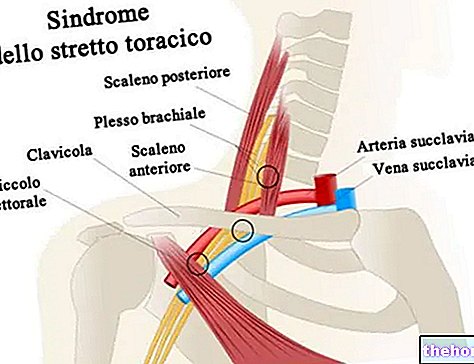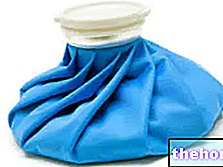of the tongue, which is visibly red, swollen and painful.We speak of acute glossitis when the characteristic symptoms of the disorder appear suddenly and for no apparent reason; when the swelling and redness of the tongue continue for long periods, in all probability it is a chronic glossitis. In the latter case, the disorder assumes a potentially dangerous connotation, given that the chronicity of glossitis is a clear symptom of pernicious anemia.Iron deficiency anemia Pernicious anemia (the mucous membrane of the tongue is smooth and red at the edges and tip) Lack of folic acid (vitamin B9) in the diet Vitamin B12 (cyanocobalamin) deficiency in the diet Tooth problems: in these cases, localized inflammation of the tongue can be caused by its continuous friction with chipped teeth, prostheses or capsules, and orthodontic appliances Disorders of a hepatic nature Inheritance Exposure to irritants Yeast infection (e.g. thrush or oral candidiasis) Infections caused by viruses (eg Herpes simplex) Infections caused by bacteria (e.g. syphilis and scarlet fever) Oral lichen planus Geographic tongue (o migrating glossitis): this disorder presents with red or white patches on the lingual mucosa that tend to migrate from one part of the tongue to the other. The etiology (search for causes) is still being studied. Tongue piercing Allergic reactions to drugs taken orally (the main culprits are ACE inhibitors, used for the treatment of hypertension), foods, toothpastes, mouthwashes, dyes present in candies, plastics or resins of prostheses Poor hydration / reduction in the amount of saliva in the mouth (also caused by diseases such as Sjögren's Syndrome) Long-term antibiotic therapy, responsible for the weakening of the immune system Burns to the tongue Ingestion of foods rich in oxalic acid crystals: these tiny and sharp mineral aggregates can irritate the mucous membrane of the tongue and oral cavity by rubbing, triggering the symptoms of glossitis (as occurs, for example, following the ingestion of kiwifruit).
The lingual mucosa tends to peel, giving rise to extremely sensitive patches of variable size: in general, the patient experiences burning or an unpleasant tingling sensation when taking hot or acidic substances, precisely because the tongue is desquamated. peeling, the tongue can change its appearance: to the touch, it is in fact smooth and smooth.
If glossitis becomes chronic, the disease can cause the destruction of the papillae that normally line the back of the tongue: in such circumstances, the papillae decrease in number, eventually disappearing. When the papillae are destroyed due to glossitis, the sufferer is no longer able to taste food.
When glossitis causes significant lingual swelling, the patient complains of difficulty chewing, speaking or swallowing.
If the doctor deems it appropriate, the patient will have to undergo a series of blood tests to rule out any metabolic abnormalities.
After having clarified any doubts, we proceed with the treatment, which varies according to the triggering cause. The main goal of therapy is to control and block inflammation of the tongue, regardless of the causative factor.
The treatment of glossitis includes:Rinse the mouth with specific mouthwashes containing substances such as analgesics, antihistamines, corticosteroids or antibacterials. The choice of mouthwash is clearly delegated to the doctor. Correct the power supply (when necessary) Pay particular attention to "daily oral hygiene, which must always be performed with toothpaste, brush and dental floss Not smoking Don't drink alcohol
Tags:
cheeses vegetables hydration

Considering the very long list of possible triggers for glossitis, it is evident how important the differential diagnosis is, that is the precise and indisputable demonstration of the underlying disorder. Only after removing the triggering agent, the swollen and red tongue can return to its physiological conditions.
and numbness of the same and the evident lingual swelling. Often, it is possible to notice a more or less marked alteration of the natural color of the tongue, which becomes brighter or paler (the latter typical sign of pernicious anemia).The lingual mucosa tends to peel, giving rise to extremely sensitive patches of variable size: in general, the patient experiences burning or an unpleasant tingling sensation when taking hot or acidic substances, precisely because the tongue is desquamated. peeling, the tongue can change its appearance: to the touch, it is in fact smooth and smooth.
If glossitis becomes chronic, the disease can cause the destruction of the papillae that normally line the back of the tongue: in such circumstances, the papillae decrease in number, eventually disappearing. When the papillae are destroyed due to glossitis, the sufferer is no longer able to taste food.
When glossitis causes significant lingual swelling, the patient complains of difficulty chewing, speaking or swallowing.
.

If the doctor deems it appropriate, the patient will have to undergo a series of blood tests to rule out any metabolic abnormalities.
After having clarified any doubts, we proceed with the treatment, which varies according to the triggering cause. The main goal of therapy is to control and block inflammation of the tongue, regardless of the causative factor.
The treatment of glossitis includes:
- Rinses with analgesic mouthwashes, containing for example lidocaine
- Gargling with antimicrobial mouthwashes (e.g. chlorhexidine) or antihistamines (e.g. diphenhydramine)
- Rinse with corticosteroid-based mouthwashes, powerful anti-inflammatory drugs
- Taking food supplements, indicated when glossitis depends on vitamin deficiencies
- Cure for pernicious anemia
- Taking antibiotics or antifungals by mouth, indicated when glossitis depends, respectively, on bacterial or fungal infections (e.g. from Candida albicans) ascertain
Self-medication is strongly discouraged without first having consulted an expert: glossitis could in fact hide serious disorders.




























